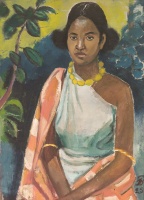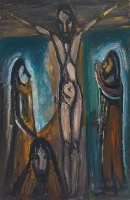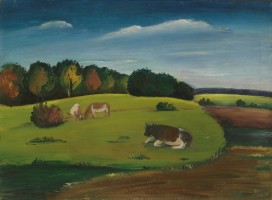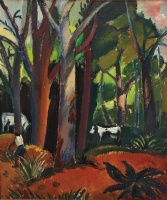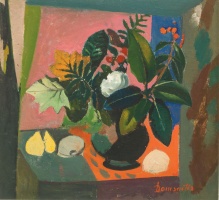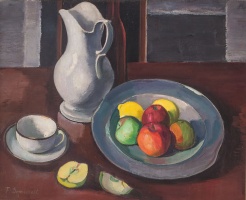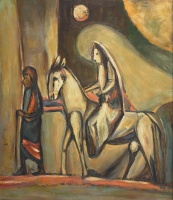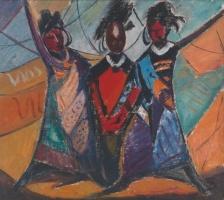
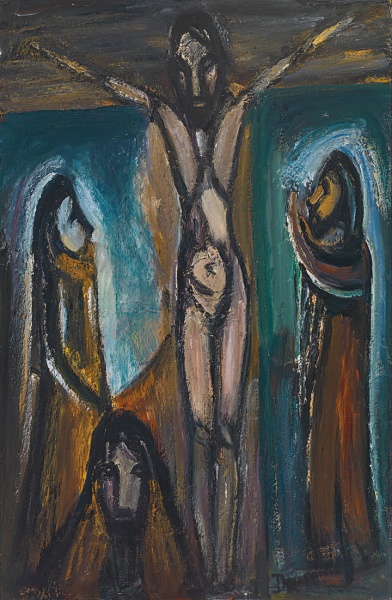

Crucifixion II
| Author: |
Franz Domscheit (1880–1965)  |
| Created: | 1958 |
| Material: | cardboard |
| Technique: | oil |
| Dimensions: | 86 × 56 cm |
| Signature: | bottom right: Domsaitis |
Pranas Domšaitis (1880–1965) was born into an East-Prussian peasant family, and lived and worked in Germany, and later in South Africa. His development as a painter was affected by trends in German culture in the first half of the 20th century. He was influenced deeply by his acquaintance with the Norwegian artist Edvard Munch and the German avant-garde Expressionists. At the beginning of the 20th century, the German Expressionists often used religious stories in their experimentation with form and content, and this is why Christian themes were of major importance in Domšaitis’ work. In his first attempts at applying a modern style, he painted Biblical motifs as real scenes from country life, bathed in a mysterious twilight. When he fled from war-time Europe to South Africa, he continued to develop his interpretations of Biblical stories, and often returned to the themes of Redemption, the flight into Egypt, the Adoration of the Shepherds and the Crucifixion. Domšaitis produced many versions of his paintings in his search for archetypal imagery in order to reflect precisely the substance, perfection and intensity of expression of the spiritual content. German art critics viewed his work as ‘very promising modern religious art’, and recommended that his works be placed in churches, and even called them ‘modern icons’ suitable for meditation.
Text author Dalia Vasiliūnienė
Source: Law firm Valiunas Ellex art album HEAVEN AND BEYOND (2016). Compiler Dalia Vasiliūnienė. Text authors Dalia Vasiliūnienė, Skaidrė UrbonienėExpositions: “Always on the Road. Paintings from Private Collections”, 12 June – 27 July 2015, M. Žilinskas Art Gallery, Kaunas; “Heaven and Beyond. Works of religious art from the collection of Rolandas Valiūnas and the law firm Valiunas Ellex“, 31 May–24 September 2016, Church Heritage Museum, Vilnius (curators Dalia Vasiliūnienė, Skaidrė Urbonienė)







